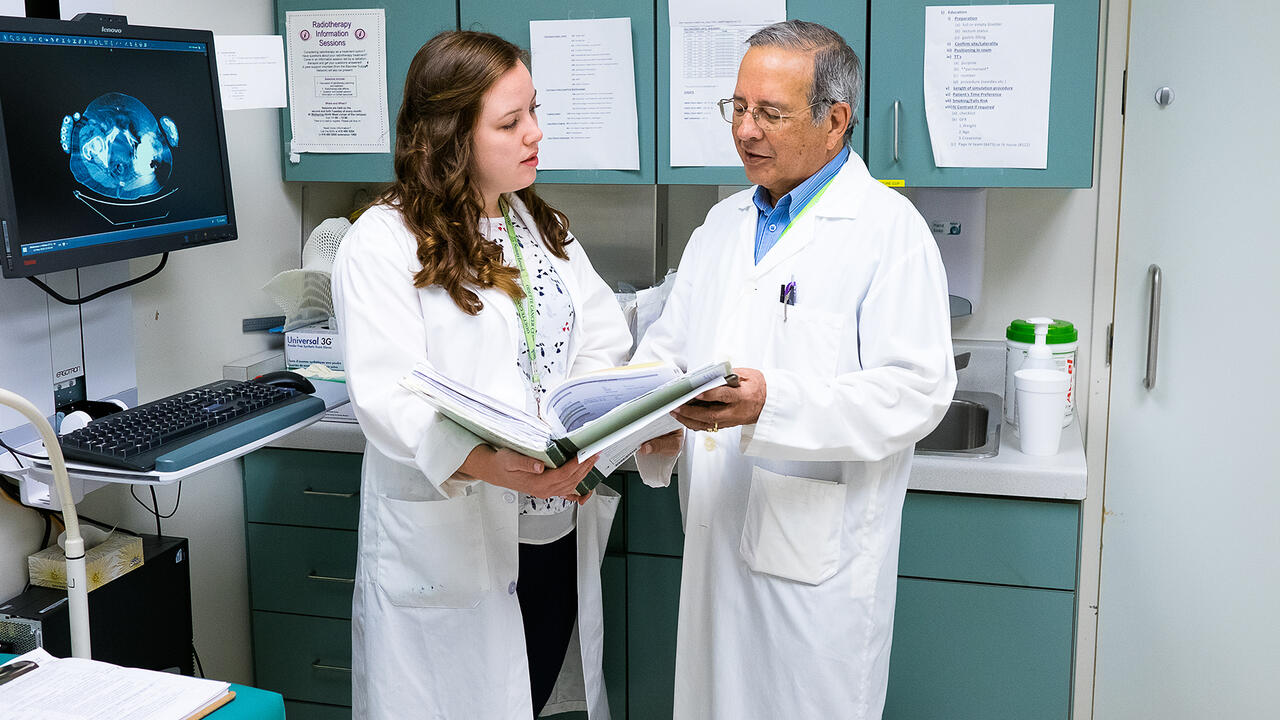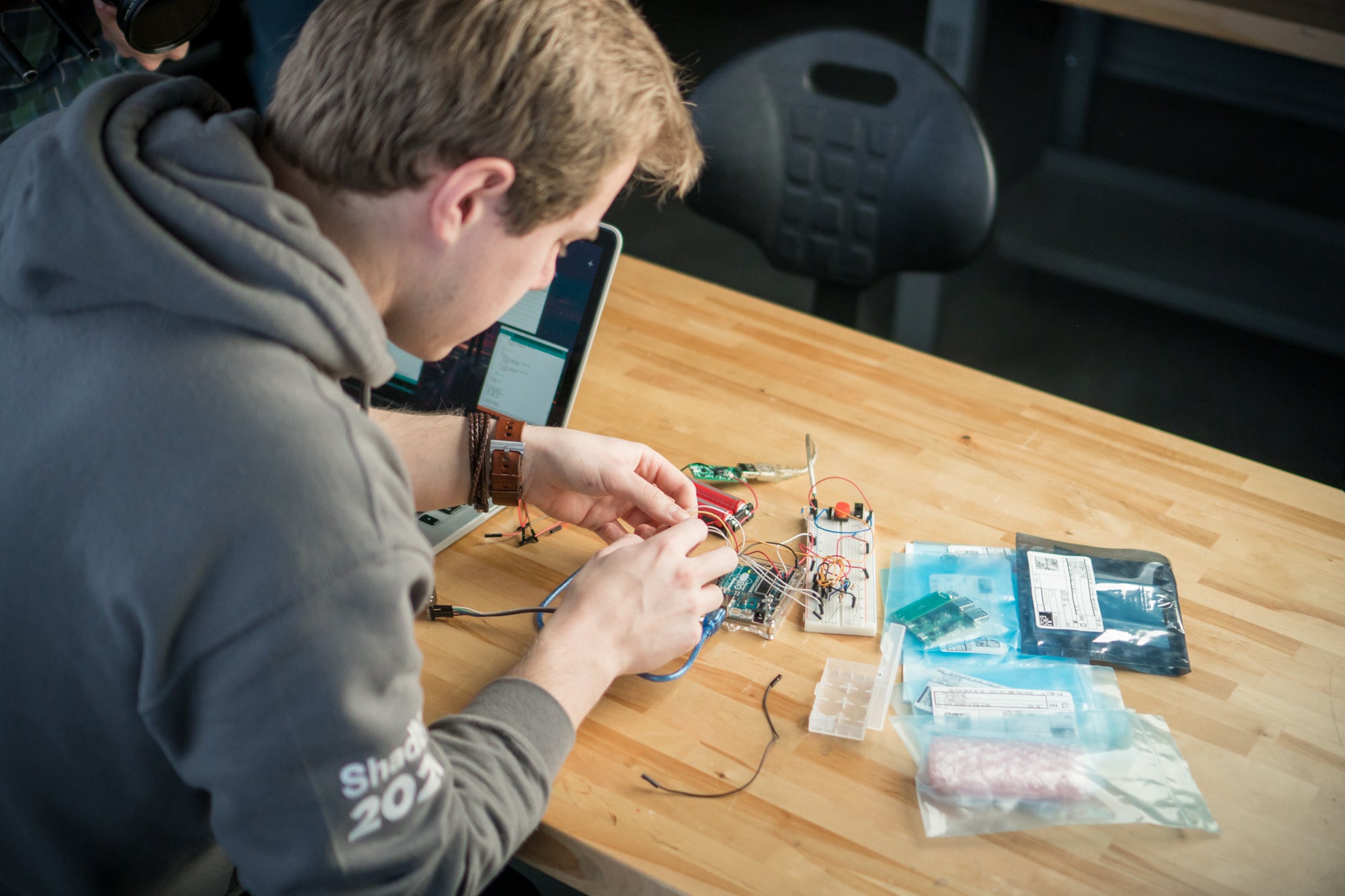
Tried, tested, and true
How Waterloo’s startup and co-op connection is future-proven

How Waterloo’s startup and co-op connection is future-proven
By Robyn Clarke University RelationsSince 1957, co-operative education has been a cornerstone of the University of Waterloo’s history.
For Ingrid Roorda, Waterloo’s co-operative education program has been on her radar for more than four years. Now a 4B Mechanical Engineering student at Waterloo, Roorda considers the co-op program an essential part of her educational experience, citing the unique opportunity to travel and try out different careers as a way of helping her find what she is genuinely passionate about.
“While I knew I wanted to do a STEM degree at the University of Waterloo, I realized at the same time that I wanted to work with my hands,” Roorda says.
Roorda’s craving for a hands-on experience was soon fulfilled through her first co-op experience at a creative technology studio based in Toronto. Hired initially as a creative technologist for wonderMakr, Roorda wore many hats on a team of fewer than 15 people.
One of Roorda’s favourite aspects was just how much responsibility was given to her — from solo travelling or individual projects.
“wonderMakr put a lot of trust in me,” she says. “I travelled — often solo — to Quebec City, as well as Edmonton and around Toronto.”
Attendance at big design expos, events at Yonge and Dundas square and a phone release party to run an installation were just some of the highlights of her experience.
“Every day was different,” she adds.
Roorda credits her co-op experience for genuinely changing how she saw her future.
“Before my internship at wonderMakr, I wasn’t sure how well I fit into mechanical engineering,” she recalls. “At wonderMakr, I found I could be creative while still doing technical tasks. I felt a more human connection with my work. It heightened the independence and confidence I had in myself to take ownership of projects”.
Since then, Roorda has gone on to complete co-op work terms at startups in Munich, Berlin and San Francisco.

Start-ups give students valuable experience
It’s no surprise that driven students like Roorda are drawn to startup companies such as wonderMakr. When working for these technology companies, students are given the unique opportunity to work closely in open-concept incubators, led by young, driven and passionate entrepreneurs.
No one is more familiar with this than Jay Shah (BASc11’), one of the first co-op students at Clearpath Robotics, a Waterloo startup that went on to be a hugely successful company. Shah’s early experience at Clearpath gave him the foundation and confidence to found Bufferbox in 2010, a startup that was acquired by Google in 2012.
“Waterloo’s co-operative education program significantly enhances the output of Velocity and other entrepreneurship programs because our founders have real-world, lived experiences in the industry. They know what industry’s problems are and how the industry actually works,” he says.
Shah was the Director of Waterloo’s Velocity program from 2016-2020, mentoring entrepreneurs and co-op students on the road to success. In this role, Shah saw first-hand the impact Waterloo co-ops can make to a business’ talent pool and bottom line. A recent study by Deloitte showed that for every $1 a business invests in a co-op student, there is a $2 economic gain.
These budding businesses often embrace an “all-hands-on-deck” approach, offering workers the chance to try various roles within the team. For Computer Engineering alumnus Alan Wang (B.A.Sc. ’19), the experience was no different.
Wang spent a co-op term working for Evichat, a startup that collects and manages digital evidence for officials working in law. During his work term, Wang mobilized his interest in computer engineering in a completely new way. As one of four team members, Wang was given real-world tasks to complete and developed skills that he says served him well post-graduation.
“The skills I gained there are necessary for anywhere,” Wang says. “They would say, okay, this is a feature we want you to build, and I would just have to do it. It was fun because I was learning a lot of new things, but it was definitely challenging.”
During those times, Wang says he was supported by another Waterloo alumnus on the team, Nilesh Pandey. Pandey is co-founder and chief technology officer at Evichat.
Wang is grateful he was able to spend a co-op term at a smaller startup, as it helped him secure his current full-time position at Boosted.ai, a young company based in Toronto.
“Working at Evichat gave me the experience to learn how to problem-solve on my own,” Wang says.
With a 96 per cent employment rate six months after graduation, it is clear that Waterloo prepares talent ready for the rapidly changing industry and work place landscape.

Read more
Here are the people and events behind some of this year’s most compelling Waterloo stories

Read more
Discover how Waterloo alumni are driving Canada’s economy with five tech companies making a local and global impact

Read more
Meet the 13 exceptional students representing Waterloo’s newest grads
The University of Waterloo acknowledges that much of our work takes place on the traditional territory of the Neutral, Anishinaabeg, and Haudenosaunee peoples. Our main campus is situated on the Haldimand Tract, the land granted to the Six Nations that includes six miles on each side of the Grand River. Our active work toward reconciliation takes place across our campuses through research, learning, teaching, and community building, and is co-ordinated within the Office of Indigenous Relations.